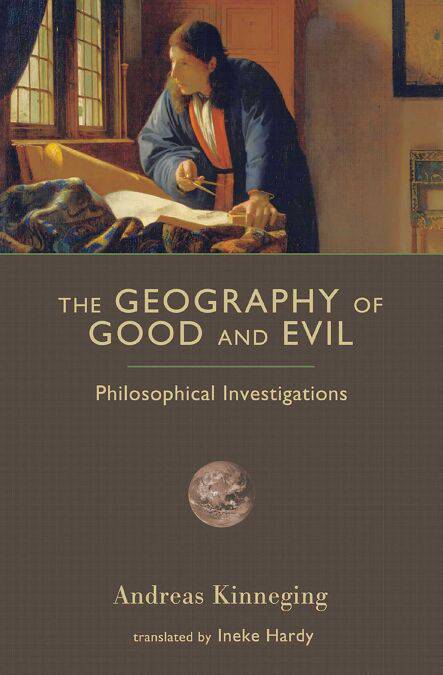
- Afhalen na 1 uur in een winkel met voorraad
- Gratis thuislevering in België vanaf € 30
- Ruim aanbod met 7 miljoen producten
- Afhalen na 1 uur in een winkel met voorraad
- Gratis thuislevering in België vanaf € 30
- Ruim aanbod met 7 miljoen producten
Zoeken
The Geography of Good and Evil E-BOOK
Philosophical Investigations
Andreas Kinneging
E-book | Engels
€ 14,53
+ 14 punten
Uitvoering
Omschrijving
Do good and evil exist? Absolutely.
In this bracing book, the eminent Dutch philosopher Andreas Kinneging turns fashionable thinking on its head, revealing how good and evil are objective, universal, and unchanging—and how they must be rediscovered in our age.
In mapping the geography of good and evil, Kinneging reclaims, and reintroduces us to, the great tradition of ancient and Christian thought. Traditional wisdom enables us to address the eternal questions of good and evil that confront us in both public and private life. Though it is common to accept uncritically the blessings of modernity and its intellectual sources, the Enlightenment and Romanticism, Kinneging shows that traditional thinking is richer and more realistic. Indeed, we see how, in more than a few respects, the Enlightenment and Romanticism brought not progress but deterioration. Kinneging skillfully reformulates and defends the insights of traditional thinking for today's readers, demonstrating how an objective morality is to be understood and how we can know what morality demands of us.
At a time when the traditional virtues have practically disappeared from our language (that is, all but one—"tolerance"), he lays out the foundations of virtue and vice. Ultimately, Kinneging reveals the lasting significance of these seemingly archaic notions—to our own lives, to our families, to our culture, and to civilization.
This profound, award-winning work establishes Andreas Kinneging as one of our wisest moral philosophers.
In this bracing book, the eminent Dutch philosopher Andreas Kinneging turns fashionable thinking on its head, revealing how good and evil are objective, universal, and unchanging—and how they must be rediscovered in our age.
In mapping the geography of good and evil, Kinneging reclaims, and reintroduces us to, the great tradition of ancient and Christian thought. Traditional wisdom enables us to address the eternal questions of good and evil that confront us in both public and private life. Though it is common to accept uncritically the blessings of modernity and its intellectual sources, the Enlightenment and Romanticism, Kinneging shows that traditional thinking is richer and more realistic. Indeed, we see how, in more than a few respects, the Enlightenment and Romanticism brought not progress but deterioration. Kinneging skillfully reformulates and defends the insights of traditional thinking for today's readers, demonstrating how an objective morality is to be understood and how we can know what morality demands of us.
At a time when the traditional virtues have practically disappeared from our language (that is, all but one—"tolerance"), he lays out the foundations of virtue and vice. Ultimately, Kinneging reveals the lasting significance of these seemingly archaic notions—to our own lives, to our families, to our culture, and to civilization.
This profound, award-winning work establishes Andreas Kinneging as one of our wisest moral philosophers.
Specificaties
Betrokkenen
- Auteur(s):
- Uitgeverij:
Inhoud
- Aantal bladzijden:
- 298
- Taal:
- Engels
Eigenschappen
- Productcode (EAN):
- 9781684516209
- Verschijningsdatum:
- 3/04/2023
- Uitvoering:
- E-book
- Beveiligd met:
- Adobe DRM
- Formaat:
- ePub

Alleen bij Standaard Boekhandel
+ 14 punten op je klantenkaart van Standaard Boekhandel
Beoordelingen
We publiceren alleen reviews die voldoen aan de voorwaarden voor reviews. Bekijk onze voorwaarden voor reviews.











